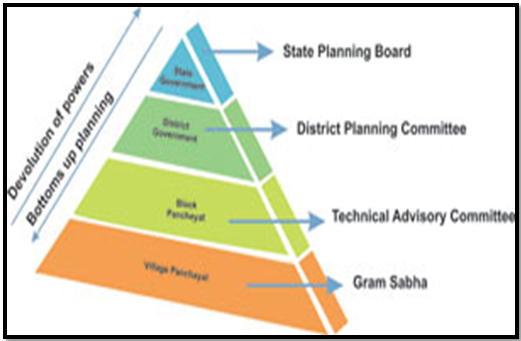STRENGTHENING LOCAL GOVERNANCE FOR SUSTAINABLE DEVELOPMENT IN INDIA
Syllabus:
- GS-2- Local self governing institutions in India , Significance, challenges and solutions
Focus:
- Empowering local governments in India is crucial for delivering essential infrastructure and services. Strengthening their fiscal and administrative capacities, ensuring fair and regular elections, and building transparency and accountability are key steps towards enabling local bodies to contribute effectively to economic development and address local needs.
Source - TET
Introduction
- Historical Context: Local governments have been integral to India since ancient times but were disrupted during British rule.
- Revitalization: Post-independence, the Constitution was amended in the early 1990s to empower local bodies.
- Current Scenario: Despite constitutional provisions, local governments are not functioning as effectively as intended.
- Political Commitment: The ruling BJP has pledged to facilitate fiscal autonomy for Panchayati Raj Institutions.
Importance of Local Governments
- Economic Development: Local governments are crucial for delivering infrastructure and services like irrigation, roads, sanitation, education, and healthcare.
- Alignment with Local Needs: They can better align development projects with local needs, enhancing efficiency.
- Global Dependency: Many developed and developing countries rely on local governments for basic service delivery.
Challenges Faced by Local Governments in India
- Resource Constraints: Local governments in India are heavily dependent on grants from higher levels of government.
- Limited Revenue-Raising Capacity: Panchayats’ own revenues constituted only 1% of the total revenue receipts in 2022-23.
- Principal Revenue Source: Grants from higher-tier governments account for more than 95% of their receipts.
- Restricted Autonomy: Limited revenue-raising capacity curtails their autonomy in expenditure decisions, with untied expenditure constituting only 40% of total expenditure.
Constituional Provisions :
|
Need for Legislative and Fiscal Reforms
- Clear Specification of Powers: The Constitution should clearly specify the powers and functions of Panchayats and municipalities across various subjects.
- Regular Elections: Elections to local bodies must be conducted fairly and at regular intervals.
- Adequate Financial Resources: Effective functioning depends on adequate financial resources.
- State Finance Commissions (SFCs): The Constitution mandates the establishment of an SFC in each state every five years to facilitate greater devolution from state governments to local bodies.
- Improved Devolution Mechanisms: There are significant delays and inadequacies in the formation and functioning of SFCs, necessitating better mechanisms for devolution.
Enhancing Capacity and Transparency
- Capacity Building: Enhancing the administrative and technical capacity of local governments is essential.
- Consolidated Database: The absence of a consolidated database for receipts and expenditures poses a constraint.
- Proper Accounting: Improved accounting practices will enhance accountability and facilitate informed decision-making and efficient resource allocation.
- Performance Evaluation: Developing an independent and credible mechanism to evaluate local government performance, as recommended by the World Bank, is crucial.
Fiscal Autonomy and Accountability
- Direct Allocation of Funds: Evolving a system to allocate funds directly from the Central Finance Commission can ensure timely and adequate funding.
- Transparency Measures: Implementing measures to improve transparency in fund utilization and decision-making processes.
- Public Participation: Encouraging greater public participation in local governance to ensure accountability.
- Technological Integration: Utilizing digital tools to enhance transparency and efficiency in local government operations.
Conclusion
- Legislative Changes: Enacting necessary legislative changes to strengthen local governments is imperative.
- Building Capacity: Investing in capacity building and transparency measures will improve the effectiveness of local governance.
- Fiscal Reforms: Ensuring adequate and timely financial resources through improved devolution mechanisms and direct allocations from the central government.
- Empowerment for Development: Empowering local governments will lead to better developmental outcomes and align national development goals with local needs.
Source:The Economic Times
Associated Article :
https://universalinstitutions.com/why-local-bodies-are-financially-starved-2/
Mains Practice Question :
GS-2
“Discuss the importance of local governments in India’s economic development. What are the challenges faced by local bodies in terms of fiscal autonomy and administrative capacity? Suggest measures to strengthen local governance and improve developmental outcomes.”(250 words)




